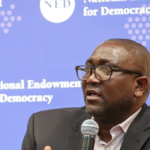ACCRA — The World Bank has delivered a scathing assessment of Ghana’s 2022 economic meltdown, attributing it squarely to domestic fiscal mismanagement rather than external shocks like the COVID-19 pandemic or the Russia-Ukraine war. In its latest Policy Notes on Ghana, released Friday, the Bank dismissed the previous administration’s narrative of global forces as the primary culprits, labeling the crisis “fundamentally self-inflicted” due to years of indiscipline, excessive borrowing, and weak public financial controls.
“The deterioration of global conditions due to the COVID-19 pandemic and the Russian Federation’s invasion of Ukraine was not the cause of the 2022 macroeconomic crisis; rather, it merely exposed an economy already beset with deep structural vulnerabilities and precarious macroeconomic conditions,” the report stated, highlighting how easy access to Eurobond markets over the past decade fostered “political shortsightedness” and delayed reforms. The crisis, which saw inflation spike above 54%, the cedi depreciate 50%, and a sovereign debt default, pushed over 800,000 Ghanaians into poverty, with per capita incomes stagnating around $2,200 for a decade and poverty now afflicting more than a quarter of the population.
This rebuff challenges defenses from figures like Africa Policy Lens President Dr. George Domfe, who on Asaase Radio argued “no economist can attribute the 2022 economic turmoil to mismanagement,” citing global factors like freight surges over 300% and oil prices jumping from $72 to $121 per barrel. The World Bank counters that Ghana’s repeated “expansionary spending followed by painful corrections” has trapped it in 17 IMF programs over 68 years, under active support for 40 of them—a record underscoring the need for structural fixes.
The Bank’s recommendations urge the current administration under President John Dramani Mahama to enforce fiscal rules, broaden the tax base, and reform state-owned enterprises (SOEs) in energy and cocoa sectors before eyeing a Eurobond return. “Temporary fixes will not be enough,” it warned, advising against rushing back to markets as it could signal the “easy way out” to investors, potentially locking Ghana out again. Energy sector arrears alone drain 2% of GDP yearly, while COCOBOD’s $1.8 billion debt in 2024 distorts markets and harms farmers.
Ghana’s recovery under the “Reset Ghana” agenda shows promise: The cedi appreciated 21% year-to-date, inflation fell to 11.5% in August, and GDP grew 6.3% in Q2. Yet, the World Bank stresses regaining citizen trust through decisive action, as 2024 election-year excesses risk reversal.




